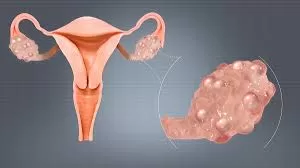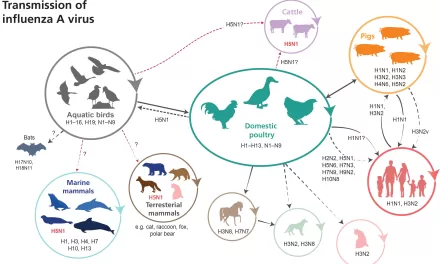A recent systematic review led by Monash University highlights an urgent need to reform lifestyle management approaches for polycystic ovary syndrome (PCOS) to reduce weight stigma, which can negatively impact mental health and well-being in affected individuals. The study, published in Obesity Reviews, emphasizes that an excessive focus on weight loss, often seen in PCOS treatment, acts as a barrier to care for many women.
PCOS, a complex endocrine disorder, affects between 10–13% of women of reproductive age and is associated with symptoms such as irregular menstrual cycles, infertility, excess body hair, and an increased risk of cardiometabolic conditions, including diabetes. These symptoms are commonly managed through lifestyle interventions, such as diet modifications and physical activity, which are known to improve reproductive, metabolic, and psychological outcomes. However, the review found that health professionals’ lack of training in comprehensive PCOS management may be compromising the quality of care provided.
The research, conducted by the Monash Centre for Health Research and Implementation (MCHRI), synthesized findings from 68 studies on PCOS care, particularly focusing on lifestyle management strategies like diet and exercise. It identified a prevailing need for health professionals to move beyond a one-size-fits-all approach, noting that a fixation on weight loss disregards the individualized needs and goals of people with PCOS and can exacerbate mental health issues. For many, this weight-centered approach creates a stigma that affects their willingness to seek care and diminishes their overall experience with the healthcare system.
Dr. Lisa Moran, Associate Professor and Lead of MCHRI’s Healthy Lifestyle Program, stressed the importance of personalized and sustainable lifestyle interventions rather than solely weight-focused treatment. “Care should aim to meet the unique needs of each individual with PCOS, reducing weight-centric approaches so that real, lasting health improvements can be achieved,” she said.
The review highlights that weight stigma is experienced differently by those in larger and smaller bodies. Margaret McGowan, the study’s first author, a dietitian and Ph.D. candidate, observed that while individuals with larger bodies often receive weight-centric advice, those in smaller bodies are sometimes denied appropriate PCOS care because they are perceived as “healthy.” This approach not only undermines the importance of holistic care but also perpetuates misconceptions about PCOS and body size.
The study advocates for changes in healthcare training to emphasize individualized care, with recommendations for health professionals to adopt weight-neutral strategies where possible. “More training focused on patient-centered care is needed to ensure all individuals with PCOS receive support aligned with their personal health goals,” said Dr. Steph Cowan, joint senior author of the study. Such training, researchers noted, could foster better collaboration among healthcare providers and enhance outcomes for individuals with PCOS.
The authors of the review urge a more inclusive, multidisciplinary approach involving dietitians and other specialists to provide PCOS-specific advice and reduce reliance on weight loss as a primary goal.
For more details, refer to the study: McGowan et al., Understanding barriers and facilitators to lifestyle management in people with polycystic ovary syndrome: A mixed method systematic review, Obesity Reviews (2024). DOI: 10.1111/obr.13854.











